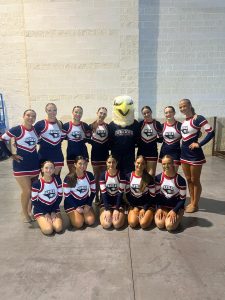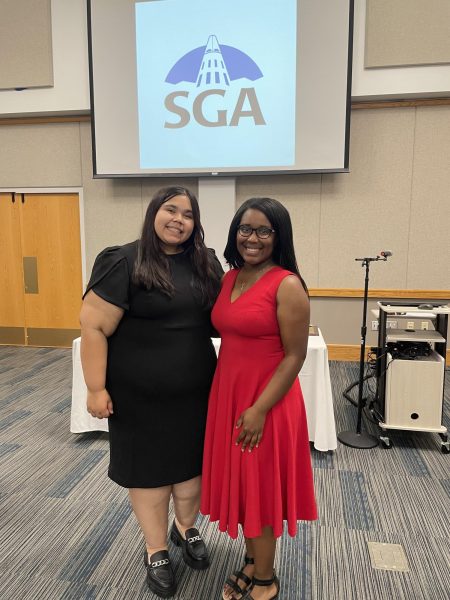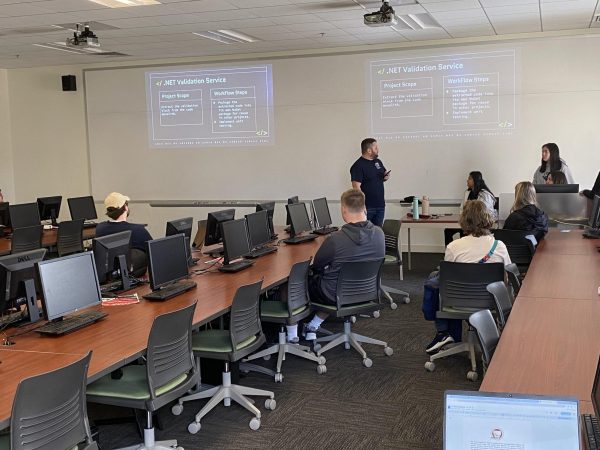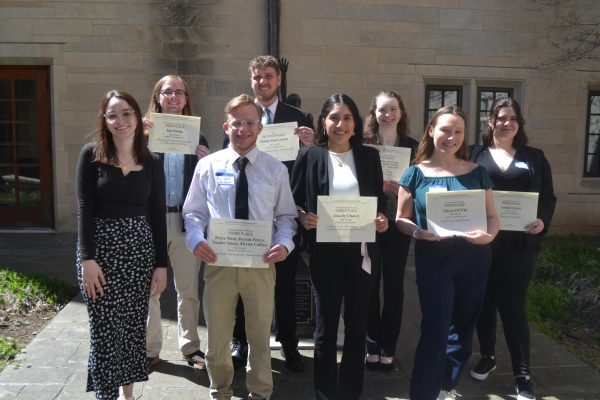University looks to add more online programs
January 17, 2018

It’s getting easier and easier for students to get their degree without ever stepping onto campus.
The university is planning to add more online degree programs for non-traditional students as part of an effort to bring in more students.
“In terms of the number non-traditional students that are either working adults or someone that didn’t go to college right out of high school tend to be place-bound and so having online degree programs allows us to still provide opportunities to them,” Executive Director of Online Learning Belle Cowden said.
Cowden, who started at the university in August, has been working in online learning since 1997. She said since about 2013, more courses are being offered to traditional students.
She said the reason for offering those courses to traditional students was to add flexibility to students schedules.
According to a BABSON survey for distance education, there were 6,359,121 students taking at least one distance education course in the fall of 2016, which comprised 31.6 percent of total higher education enrollment.
Students taking exclusively online courses rose from 12.6 percent of total higher education enrollment in 2012 to 14.9 percent in 2016. This spike in online learning comes as total enrollment across the country declined by nearly 300,000 between 2012 and 2016.
Online classes at the university started in the College of Nursing and Health Professions in the 90s and the university currently offers 11 online degree programs in all four colleges including a Master of Science in Sports Management, Master of Health Administration and Master of Business Administration with concentrations in five areas.
“There is a lot of interest in online learning from the faculty and my role coming in as a new person is to encourage those faculty to consider taking programs fully online so we can do that purposeful, sustainable growth for the university and draw more non-traditional students in,” Cowden said.
She said the role of the Online Learning office is to help faculty design quality online courses, work with departments to add online programs and host faculty workshops.
“Workshops have been going on for a number of years for the faculty, Cowden said. “We do workshops to help faculty learn how to use the technologies and they learn how to design new courses and they get to share some of the things they are working on and maybe get new ideas.”
The university will be working with Academic Partnerships (AP), a company focused on helping universities with online degree programs, to help market its online programs across the country. Consultants from AP will be on campus Jan. 24.
Another new application Online Learning is looking to implement is Zoom, which provides remote conferencing services using cloud computing.
“It’s a synchronous technology so that for example one night a week students would meet online at their computers with a camera, microphone, speakers and they would be able to meet with their professor and other classmates,” Cowden said.
















